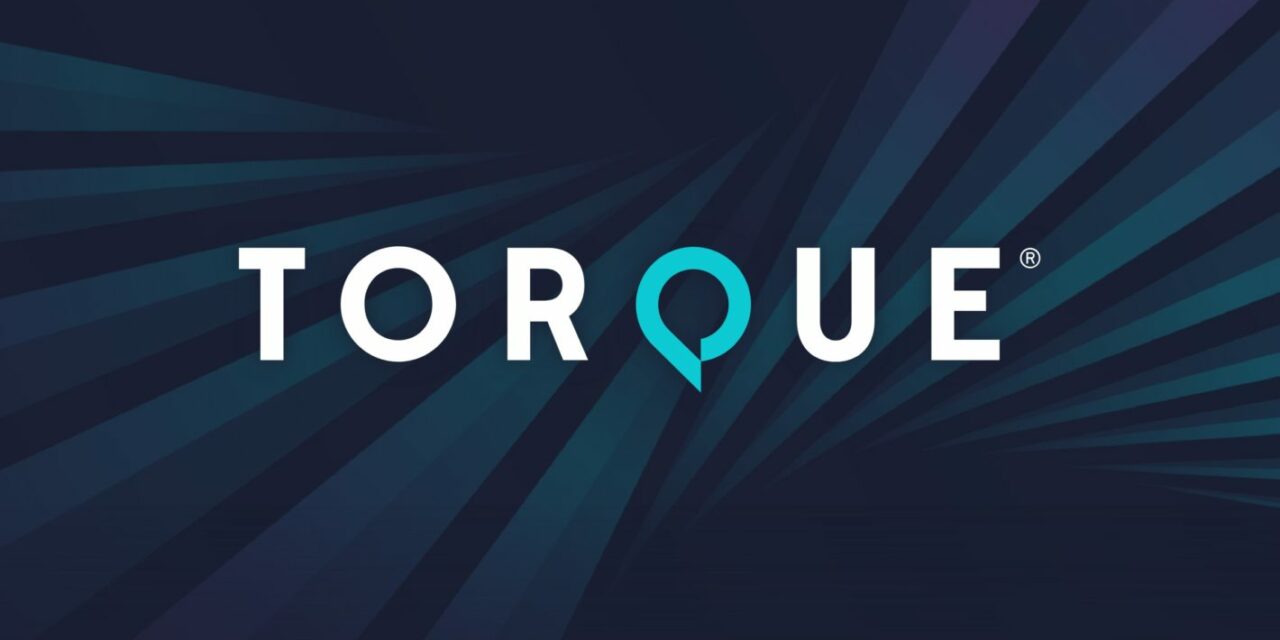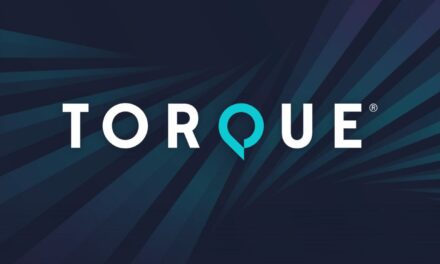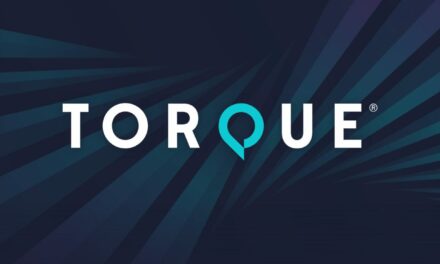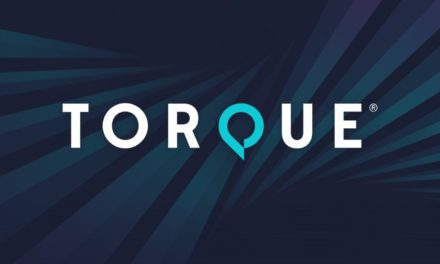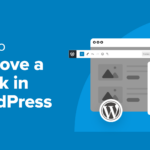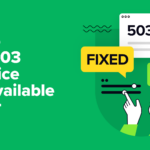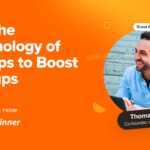Welcome to Press This, the WordPress community podcast from WMR. Each episode features guests from around the community and discussions of the largest issues facing WordPress developers. The following is a transcription of the original recording.
Powered by RedCircle
Doc Pop: You’re listening to Press This, a WordPress Community Podcast on WMR. Each week we spotlight members of the WordPress community. I’m your host, Doc Pop. I support the WordPress community through my role at WP Engine, and my contributions over on TorqueMag.Io where I get to do podcasts and draw cartoons and tutorial videos. Check that out.
You can subscribe to Press This on Red Circle, iTunes, Spotify, or you can download episodes directly at wmr.fm.
Now, there’s a lot of discussion this year and right now about the web and artificial intelligence, AI, Large Language Models, Stable Diffusion. Google and Bing have been experimenting with showing AI generated answers at the top of search queries.
And some developers are experimenting using AI tools like ChatGPT to generate code snippets. A lot of fascinating things are happening right now around AI, and as we’re recording, it’s really hard to tell where we are in this technological cycle. Like are we just at the very beginning?
Are things gonna look totally different next year? How is the web gonna be different and how is WordPress gonna be affected? So I’m super excited to have Aaron Edwards join us on the show today. Aaron is a Chief Technology Officer at WPMU Dev. He’s also the founder of Infinite Uploads, a cloud storage plugin for WordPress Imajinn AI and AI Image Generator for WordPress.
And he’s the creator of a new tool called ChatWP. The last two of those tools I think are gonna be relevant to our conversation today. Before we get into AI, Aaron, why don’t you tell us your WordPress origin story?
Aaron Edwards: Sure my short origin story I started out being really interested in WordPress when it was WordPress MU, or Multiuser now called Multi-Site because I was trying to build a kind of network of websites, kinda like WordPress.com. And so that’s when I kind of got into it and started learning WordPress development and actually joined WPMU Dev at that point as a customer and then eventually got hired by them as a developer. And now fast forward, what, 12 years or something? I’m CTO and that company’s grown quite a bit. But more recently I’ve been just building my own little side projects as well. Some of those you mentioned.
So that’s kind of my WordPress story.
Doc Pop: You and I have talked on the Torque Social Hour about Imajinn and we’re gonna talk about that later in this episode. But the newest thing you just launched is ChatWP. Kind of a fun twist on ChatGPT. Can you tell us a little bit about what is ChatWP?
Aaron Edwards: Well ChatWP is basically, it’s a chat bot for WordPress and I trained it on all the WordPress documentation from WordPress.org. And just so it has that customized knowledge about it. And then I took that to create a custom chatbot, so anybody can ask questions about WordPress and it forms full answers.
Unlike a search engine, it actually answers the full question and gives you code snippets and examples. I mean, you can even tell it to answer in the form of a poem and it will do that, which is pretty fun.
Yeah, it is really just an experiment as I’m kind of learning this new technology and kind of brand new ways to customize it for your own needs.
Doc Pop: So you said how this would be different than taking your question to Google or looking it up on Stack Overflow, but how is looking up a question on ChatWP different than maybe going to ChatGPT and asking for a technological question like this?
Aaron Edwards: Right. Well, ChatGPT, I’m gonna get ’em mixed up at one of these points, is trained on the entire Internet, so it has kind of general knowledge from back in 2021, I think. Of a whole lot of subjects, but it’s not specifically focused on any one subject. Also they still don’t provide any kind of API to where you can control it yourself.
Doc Pop: Mm-hmm.
Aaron Edwards: You have to use their interface on their website right now. So there hasn’t really been any clear, easy and as powerful ways to build the same kind of bot for your own content. Whether it’s your own support docs or in this case as a demonstration, I did the WordPress support docs. And so it’s a very relatively new, some of the APIs that OpenAI has released have enabled building products that are very similar to ChatGPT, but building them with your own knowledge base, like custom trained.
Doc Pop: So this is trained on WordPress documentation from WordPress.org, I assume.
Aaron Edwards: Right, WordPress.org.
Doc Pop: The site says “ChatWP can make users confident they’re receiving the most accurate and up-to-date information available.”
And I imagine it’s hard to train a model when you’re using volunteer generated documentation and especially to keep it up to date, can you tell us a little bit about the difficulties around something like that?
Aaron Edwards: Yeah, for sure. I mean, obviously whatever you train on, you have to kind of trust that as the source of the truth. Within the way this AI works in the backend, is it specifically instructed to only be allowed to answer things that it finds from WordPress to older documentation? I specifically don’t allow it to pull in general knowledge that it might know from the Internet.
Because you could get bias sources or things like that.
Doc Pop: Mm-hmm.
Aaron Edwards: Also, a big part of this is I wanted it to be able to provide sources for its answers. So, when you ask it to answer something and it writes the whole answering code snippet, it will actually link right below it, the actual sources to where it got that knowledge from, ranked by which ones like were most associated with it.
So that way it’ll link directly to the relevant documentation pages so you can check his answers to make sure it didn’t make something up, which is something that ChatGPT is known for just kind of making things up. So that’s kind of a very unique thing that’s part of it that we’re able to do with that technology by indexing the sources as well as just the general knowledge.
Doc Pop: So users are encouraged to ask questions. This is a conversational structure. You can’t just say “REST API” or something. You have to ask a question about the REST API.
Aaron Edwards: Right.
Doc Pop: And you also encourage users to ask or provide how they’d like answers, like if they want a code example.
When you’re providing code examples or when ChatWP is providing code examples, is it kind of creating those, or is it quoting those verbatim from the docs?
Aaron Edwards: It’s actually for the most part, creating them. So just like ChatGPT, we are leveraging the general knowledge of language and programming language and everything that OpenAI models have learned from all of the Internet. So we’re using that general knowledge, but then we’re specifically tailoring it or limiting it to only the WordPress specific docs information.
So it’s using its general knowledge of language and general knowledge of PHP programming, for example. And it’s mixed, combining that with the specific details that it’s learned from WordPress.org. So it’s able to create code examples that way, which is pretty amazing.
Doc Pop: And can users say, “Hey, I’m trying to edit WordPress 5.0 or something.”
Can they ask questions about older versions or is this always assume they’re using the newest version?
Aaron Edwards: It would probably not be able to find or like limit to that kind of context.
Doc Pop: Mm-hmm.
Aaron Edwards: Just cause we basically just scraped every page from WordPress.org. Whether it’s like the Codex, the Developer documentation about all the code, that’s auto generated or the Learn WordPress site that has tutorials and courses and things like that.
So it’s just kind of pulling in that information and answering based on what it knows there. And then it’s specifically instructed that if it doesn’t find the answer in those sources, like specifically, then it will say, I don’t know, look on WordPress.org. So it’s kind of instructed to not make those things up or make those combinations if it didn’t find them from WordPress.org.
Doc Pop: Yeah, that makes sense. And if documentation gets updated, does it have a way of scrubbing the old information, or is that like a manual process you have to do?
Aaron Edwards: Right now it’s manual, as I mentioned in the FAQ. I tried different ways to get that data, like REST API or different things like that. But I found the most efficient way was actually just to build a web crawler and scrape WordPress.org, ‘cause then you get the full HTML how it was meant to be presented.
I use that for training. So right now that was just a manual process, but I have scripts that I can run to update it manually. But eventually kind of the idea was just for this to be an experiment to learn and play with this new technology and then also, I kind of added a wait list form there with just gathering interest for if people are interested in something like this for their own business, their own documentation.
So I think that could be a fun, cool product to build to where anyone could have a chatbot for their own business.
Doc Pop: Let’s talk about that in a minute. We’re gonna take a quick break to get to our sponsors, but when we come back, we’ll continue talking with Aaron Edwards, the creator of ChatWP about AI and WordPress.
Doc Pop: Welcome back to Press This, a WordPress Community podcast on WMR.fm. My name’s Doc. I’m your host today, and I am talking to Aaron Edwards about AI and WordPress. We are talking so far about ChatWP, a brand new tool that allows you to go and ask questions, get code examples, all sorts of stuff in regards to WordPress, and you can check that out at WPdocs.chat.
And you know, you were just kind of talking about how currently we’re scraping WordPress documentation to kind of provide the answers for these questions on the chat. But are there future plans to kind of do this beyond WordPress? Do you have future partnerships lined up?
Aaron Edwards: Yeah, I hope to. I’ve already been working on building this into WPMU Dev, my day job. So we’re testing this technology also with our own documentation there, but eventually I would like to turn this into a service that any online business that has documentation or support tickets, any kind of that data that they can use to ingest and learn from, and they would be able to use that on their own sites.
So whether customer facing or even it could be used for like internal company documentation where you index that. You have for example, a Slack bot or something in your company, and then you can ask how many days off do I get, you know, when’s the next holiday or whatever. And it would be able to give you answers instead of having to search through piles of HR documentation, there’s so many use cases for this.
It’s just really fun to think about.
Doc Pop: I hadn’t thought about using implementation like this, like chat implementation for intranet, internal web stuff. That is pretty interesting. You mentioned that possibly something like this might come to WPMU Dev, and so that would be, y’all have documentation for your mini apps, mini plugins, and so that would be sort of like on your site as well and it would help users of those plugins maybe find answers to questions.
Aaron Edwards: Yeah, exactly. So we would just expose it as part of our support options where people could ask the AI for the answers they want. And of course I also have plans, for example, we have support forums and you have support tickets. Like you may have help desk software.
Would it be possible to actually write a draft answer to support tickets automatically based on your company’s internal knowledge or even based on training it on all the support tickets that you’ve already answered in the past? So, I mean, almost any online business has a help desk or something like that, and they have a huge amount of data already that the AI could learn from.
If you could build a custom one and then you can use that to help answer people’s questions in the future, which was a pretty amazing thought.
Doc Pop: Regarding ChatWP. This is paid API access that you have, that you’re providing, kind of complimentary. And you do mention on here, I think I saw a tweet, “If you do hit the rate limit, we provide a way to make requests using your own OpenAI API key instead,” is what you said.
For people who are listening, if I was using this and for some reason, your API key had been maxed out, your quota had been reached, what would be the process if I wanted to keep using this but not pay money?
Aaron Edwards: Well I have a rate limit that I just set up right now that’s basically per user or visitor or whatever, and I’m just trying to keep someone from spamming it or putting a bot or whatever and costing me a ton of money because every question is costing a number of cents.
So that can add up quickly when you have thousands of people that are asking questions. So I just kind of put a basic rate limit there. And if you hit that rate limit, which resets daily right now, then it will just actually prompt you to enter your own API key, which anyone can create an open AI account.
And they give you $20 of free credit. So then you just put in your own key and then it would use that to make the request instead. And so that frees me from having to block people and they can just continue to use it using their own credits.
Doc Pop: Well, that’s cool and I do have to say I appreciate at the bottom of the page you say, “Help contribute to WordPress and improve this bot by joining the documentation and training teams.” That’s a nice call to action there and shout out to those teams.
Aaron Edwards: Yeah for sure.
Doc Pop: And I think anything that, anything that kind of helps make their work more visible is awesome.
I wanna switch things up a little bit and talk about other AI WordPress implementations that you’ve worked on. You and I have talked on the livestream about Imajinn AI, but I don’t think we’ve introduced that to our Press This audience.
So why don’t you tell us about Imajinn AI.
Aaron Edwards: Yeah, sure. So I was following really closely when OpenAI came out with Dall-e, which was their image generation model, and it was very hard to get into the beta testing. I think I finally got access back in July or something. So playing around with that, at that point it was like, this is amazing, revolutionary as we’ve seen how it’s affected art and image generation and things like that and the things that can be done with it.
And so once the first kind of open source model that was capable of doing that came out, which is called Stable Diffusion. I was following that very closely, just waiting for that to drop and the second it did, I just started getting to work that weekend and trying to build a proof of concept for how you could generate images like that within WordPress since it’s a platform I know and what I’m best at developing for.
And so that was back in August and I kind of tweeted that out and shared it. It went pretty viral and um, so we released that plugin, Imajinn. Back at the beginning of September. So that’s our plugin for generating images. And so since then I’ve maintained that plugin and added new features, but also have pivoted as newer technologies have kind of come up.
So I turned it kind of into a SaaS. So that isn’t necessarily WordPress dependent. So we have a whole bunch of different little mini products that we launched on that, which you can see at Imajinn.AI. But we’ve done everything from where you can custom train product photos or pictures of yourself so you can generate all kinds of images. You’ve seen that kind of go viral too, like with avatars, AI avatars, profile pictures, that kind of thing.
Doc Pop: Mm-hmm.
Aaron Edwards: We’ve also built ways that you could make a printed portrait for Valentine’s Day. My wife and I released a children’s book that uses that underlying technology to turn the child’s pictures into like a superhero and a doctor and construction worker and all these different things within the children’s book.
Most recently we launched a product photo visualizer. And that’s actually free. So where you just upload your product photo and then it can totally change the style and background. It’s kind of like a virtual photo shoot,
Doc Pop: Mm-hmm.
Aaron Edwards: That’s kind of fun. I’m hoping to integrate that into the plugin and so it could be used like maybe for WooCommerce images, things like that.
Doc Pop: Oh, cool. For anyone who is hearing this and wants to research it more, it’s Imajinn.ai and you can find out more about it. And one of the things that really got me about the Gutenberg Block, the Imajinn Block, is just how cool it was to be able to kind of interact with Stable Diffusion within a WordPress block.
It just felt really polished and it was one of those things that really, if you were still on the fence about blocks. This is one of those implementations you’re like, okay, this really shows how cool a block can be. It was a really cool implementation and shout out to y’all for that.
Aaron Edwards: That was my first Gutenberg block that I built, so that was a fun learning experience too.
Doc Pop: We’re gonna take another short break and when we come back we’re gonna talk to Aaron Edwards about predictions for the web and AI and WordPress. So stay tuned after this break.
Doc Pop: Welcome back to Press This, a WordPress Committee podcast on WMR. I’m your host, Doc Pop, and today I am talking to Aaron Edwards, who’s a busy dude making a ton of cool projects like Infinite Uploads, Imajinn AI Chat WP, and of course he’s also the CTO over at WPMU Dev. We have spent all of the show so far talking about ChatWP and Imajinn AI, kind of two specific WordPress implementations Aaron, you’ve been working on.
I kind of just want to take a step back and see if you have any predictions for AI and WordPress. Right now it’s hard to tell what’s the fad and like, what’s gonna stick around and how much more advanced things are gonna get. Are we kind of like seeing something that we will see like a year from now?
Will it look the same or is this technology gonna look totally different? I’m not gonna ask you all those. I’m just gonna ask you, just give me your predictions for AI and WordPress.
Aaron Edwards: That’s a big concept. I think it’s just been interesting, I mean, what has happened in the last year is ridiculous, whether it’s the image generation or ChatGPT, large language model text generation. It’s really just a kind of revolution. It’s kind of in that phase where everyone’s just super excited about it.
I’m sure that there’s gonna be that crash soon, that trough of disillusionment they call it, with new technology. And then from that is where we actually see the real tools that will be actually practical and they’ll just gradually get integrated in everyone’s workflow and everyone’s everyday life. So definitely there’s a lot of hype right now. But it’s exciting ‘cause every day, new things are being invented, new ways to use it. Like even this ChatWP that I built that’s very new, it was only enabled, OpenAI released the API needed for that just in December, and then the embeddings API, which I used to actually train it, they reduce the cost of that and improved it like tenfold, how well it works.
So they reduced the cost by 10x and it basically works 10 times better. And that was only released on I think December 22nd. So this is a very new technology thing that everyone is just starting to learn about and learn new ways to use for building products, building practical things.
So as far as WordPress, I think that, obviously WordPress is all about content. So content is a huge thing. So I think that the image generation, those kind of tools will get better and easier to use for when you’re writing content. Then of course we have AI writing, which has been around for a while.
You have ones like Bertha, plugins that allow you to like insert writing. Then of course you have some big companies like Jasper and things like that. Some of them have browser integrations just to help you write content. And of course that’s another subject when it comes to SEO and if that’s to write content using AI, so I don’t have any specific things, but I think that content is probably the biggest thing that’s gonna impact WordPress for sure.
Doc Pop: SEO is kind of a surprising element that I think WordPressers talk about when we think about AI and I think in the beginning my biggest fear was that AI generated content, largely through WordPress sites would flood Google, right? Like you wouldn’t be able to find anything because everything was gonna be just people competing using bots to generate content that just does really well.
That was my fear. And it’s funny, that was like a month ago and now my fear since Bing and Google have experimented with adding ChatGPT answers to things. Now my fear is the opposite is that Google won’t be sending traffic anywhere because they’re gonna be uh…
Aaron Edwards: SEO won’t exist anymore.
Doc Pop: Yeah. So there’s theories that I’ve seen people saying that in order to stay relevant within a world where ChatGPT answers or AI answers are at the top of search results, large publishers might end up partnering with Google to make sure that they’re training Google on their results. So in order to be maybe the most relevant thing that shows up in a chat answer, New York Times might be like, “Hey we’re giving you quick access to all of our content to make sure that you’re really well trained in case anything comes up.”
Right? It reminds me of AMP in a way of like the Google Amp, and kind of like Google showing AMP results up at the top. And so publishers were incentivized to use AMP. I kind of feel like we’re maybe gonna see some sort of pressure there to team up with Google. I’m really going all over the place here.
But like that’s what’s happening with SEO is our concerns are just pivoting from one thing to another. You know, since AI’s come around
Aaron Edwards: Exactly. I think the focus will be less on SEO and more about actually providing answers to people’s questions. And that will be integrated, you know, into these Large Language Models more easily. So I think it will have a positive benefit, honestly ‘cause really SEO has become a very unfair game.
Doc Pop: Mm-hmm. That’s true.
Aaron Edwards: That’s my personal opinion. I hate that space, even though I have to do it for my own business, pay that tax. Another thing that I’ve heard, which is a very interesting way of looking at it, is if you know how these Large Language Models or Large Image Models, how they work, they work in, they call it latent space.
So it’s kind of like a higher dimensional space of vector numbers. So basically they’ll take a piece of text and they’ll convert that into a set of 1000 to 4,000 unique numbers called vectors. And that’s how you’re able to compare and that’s what encodes not just the words, but it’s actually encoding the patterns and things like that in text.
With that though, it’s actually a very strong form of lossy compression. Kind of like when you have a JPEG image, it doesn’t encode all of the details in it. It may look okay, like good enough for a human to see, but it’s actually missing a whole lot of information and a whole lot of data.
And these AIs basically work the same way. So it’s a very lossy compression, so it can make something that may look okay and work okay for many applications, but it doesn’t have the same level of depth as a human written thing or human generated art in that regard, there may always be that place for real human content, and people will categorize those differently as different levels.
If they want to know just the general knowledge or if they want to know the in depth, real human insights.
Doc Pop: Mm-hmm. Aaron, I appreciate your time today. It’s been really fascinating to talk to you about, uh, your predictions for AI and WordPress, and the tools you’ve already created.
If people wanna find out more about you, they can follow you on Twitter @UglyRobotDev, and I want to say thanks so much to everyone who’s listened to this episode of Press This, a WordPress Community podcast on WMR.
You can follow my adventures with Torque magazine over on Twitter @thetorquemag or you can go to torquemag.io where we contribute tutorials and videos and interviews like this every day. So check out torquemag.io or follow us on Twitter. You can subscribe to Press This on Red Circle, iTunes, Spotify, or you can download it directly at wmr.fm each week. I’m your host Doctor Popular I support the WordPress community through my role at WP Engine. And I love to spotlight members of the community each and every week on Press This.

